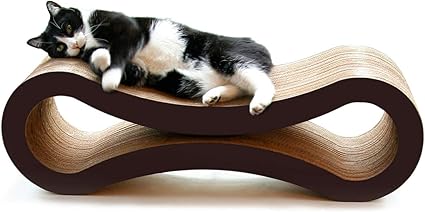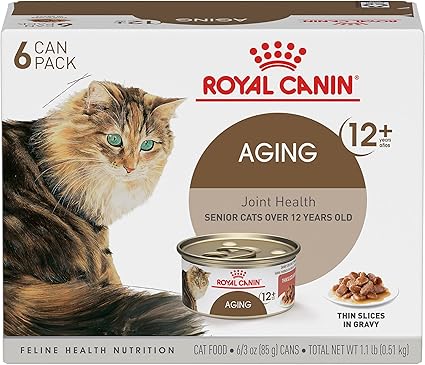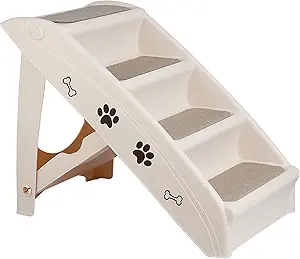As cats age, many will experience arthritis, a degenerative joint condition affecting their mobility and comfort. Senior cats with arthritis require special care to ensure their golden years are as pain-free and enjoyable as possible.
This guide provides practical tips on caring for a senior cat with arthritis, including diet, supplements, exercise, home adjustments, and other essential considerations.
Arthritis in cats, known as osteoarthritis or degenerative joint disease, is caused by the loss of joint cartilage. It leads to pain, inflammation, and reduced mobility. Common signs of arthritis in cats include difficulty jumping, stiffness after rest, reluctance to play, and changes in grooming habits.
1. Provide a Comfortable Environment
Creating a comfortable space for your arthritic cat is crucial. Soft, supportive bedding helps relieve pressure on your cat’s joints. Consider orthopedic cat beds, which provide extra cushioning and are designed to support cats with joint pain.
Recommended Products:
PetFusion Ultimate Cat Bed & Lounge

This bed is made with memory foam and provides excellent joint support for senior cats.
K&H Pet Products Ortho Bolster Cat Bed
Designed with orthopedic foam, this bed offers comfort and support to arthritic cats.
2. Adjust Food and Water Access
Ensure that your senior cat’s food and water bowls are easily accessible. Raising bowls can reduce the need for your cat to bend down, alleviating discomfort in their joints. Elevated food and water stations are ideal for arthritic cats.
Recommended Products:
Neater Feeder Elevated Cat Bowl
This raised feeder helps minimize strain on your cat’s neck and joints.
Another great option is to keep your cat’s food and water at a comfortable height.
3. Help with Grooming
Arthritic cats may struggle to groom themselves, especially in hard-to-reach areas. Regular brushing can help your cat maintain a healthy coat and reduce matting. Gentle grooming with soft brushes is best for cats with arthritis.
Recommended Products:
This soft brush is perfect for sensitive, arthritic cats.
Safari Cat Self-Cleaning Slicker Brush
It is used to remove loose hair and reduce tangles gently.
4. Introduce Joint Supplements
Joint supplements can help support cartilage health and reduce inflammation in arthritic cats. Look for supplements containing glucosamine, chondroitin, and omega-3 fatty acids, which are known to benefit joint health.
Recommended Products:
Nutramax Cosequin Joint Health Supplement for Cats
This joint supplement supports cartilage health and is veterinarian-recommended.
Vetoquinol Triglyceride Omega Cat Supplement
Rich in omega-3s, this supplement helps reduce inflammation associated with arthritis.
5. Maintain a Healthy Weight
Excess weight can exacerbate arthritis symptoms by placing additional stress on your cat’s joints. Feeding your senior cat a balanced diet that promotes joint health and maintaining a healthy weight is critical.
Consider switching to a senior cat food formulated with joint support ingredients.
Recommended Products:
Hill’s Science Diet Senior 7+ Chicken Recipe Dry Cat Food
A balanced formula with nutrients to support joint health.
Royal Canin Aging 12+ Senior Cat Food.

This food includes antioxidants and essential fatty acids to support aging cats.
6. Create a Safe, Accessible Space
Make sure your home is safe and accessible for your arthritic cat. Provide steps or ramps to help them reach higher places like couches or beds, and place litter boxes in easily accessible areas. Consider using litter boxes with low sides so your cat doesn’t have to climb over a high entry point.
Recommended Products:
PetSafe CozyUp Folding Pet Steps

Lightweight and easy to move, these steps help cats reach higher areas without putting stress on their joints.
Nature’s Miracle High-Sided Litter Box
A litter box with high sides and an easy entry point designed for older cats.
7. Use Pain Relief and Anti-Inflammatory Treatments
Veterinarians may recommend pain relief or anti-inflammatory medications to help manage arthritis pain in cats. Consult your vet about safe options, such as non-steroidal anti-inflammatory drugs (NSAIDs) or other prescription medications designed for cats.
Consult Your Veterinarian for:
NSAIDs – Your vet may prescribe an anti-inflammatory medication to help manage your cat’s pain.
Adequan – This injectable medication helps maintain healthy cartilage and is often recommended for arthritic cats.
8. Encourage Gentle Exercise
While your cat may be less active due to arthritis, regular gentle exercise can help maintain mobility and prevent stiffness. Encourage light play using toys that don’t require much jumping or intense movement, such as wand toys or laser pointers.
Recommended Products:
Petlinks Mystery Motion Cat Toy
This interactive toy provides gentle play without requiring too much movement.
Another low-impact toy that keeps your cat engaged while remaining gentle on their joints.
Final Thoughts
Caring for a senior cat with arthritis requires attention to its changing needs. Adjusting your cat’s environment, diet, and activity level can greatly improve its comfort and quality of life. Always consult with your veterinarian before introducing new supplements or medications.
With love, proper care, and attention, your senior cat can live a happy, comfortable life despite arthritis.




